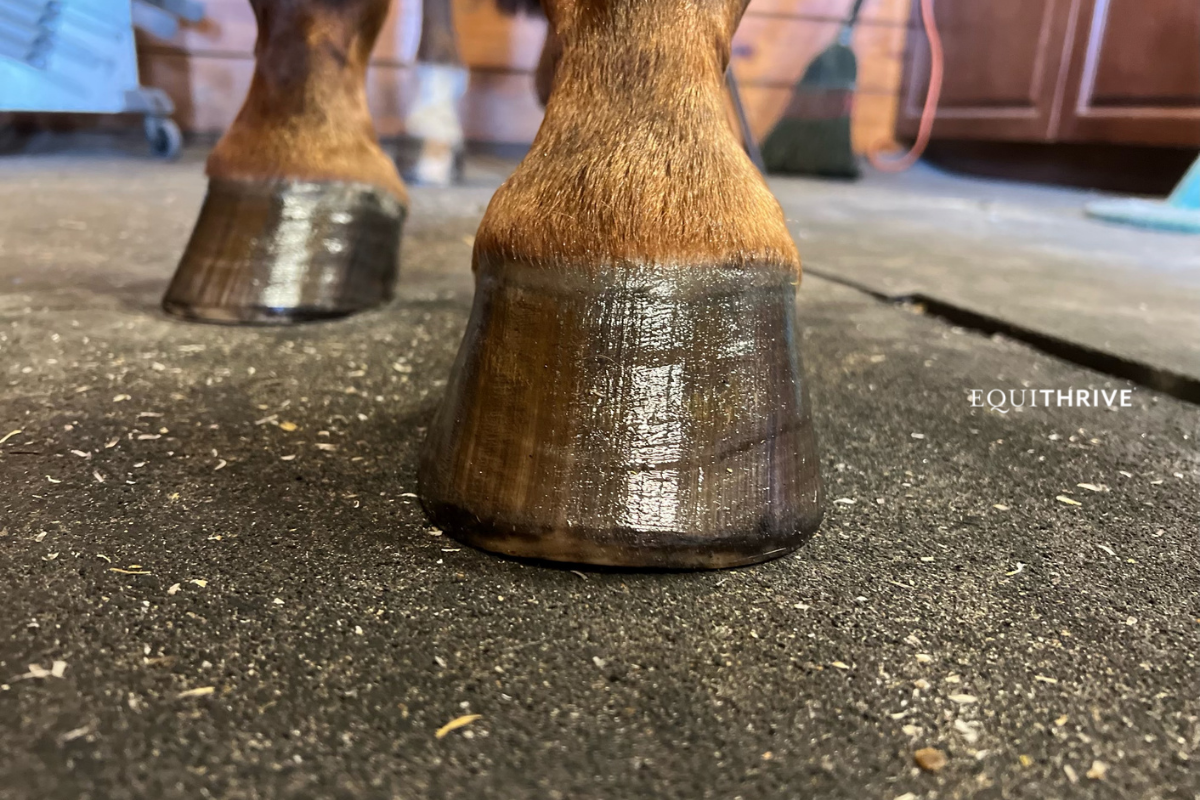
Proper nutrition is the foundation of hoof health, providing the essential vitamins and minerals horses need to promote strong hoof growth and overall wellness.
Ah, the hoof. The literal foundation of the horse. Tough enough to support roving half-ton animals, and yet, ever-so fragile. There's a reason every horse owner is familiar with the old adage "no hoof, no horse," and why most lameness evaluations start from the ground, up.
The basis for a horse's hoof health is nutrition. To promote quality hoof wall growth and soul depth, horses need the right vitamins and minerals. There are other key factors of course, some of which are out of our control (e.g. genetics or injury). Most aspects of good hoof housekeeping, however, simply requires the right approach.
Feed the Hoof
Horses can get most hoof building nutrients simply by grazing on good pasture. Calcium, essential amino acids, and trace minerals like copper, zinc, biotin, and vitamin E, are vital for the health of the hoof and can all be sourced naturally in forage.

Not all forage is created equal, however. Depending on geography, you might have pasture that's flush with selenium but deficient in zinc and copper. Or, perhaps your pastures are nutrient rich in the spring and summer, but dormant, frozen mud pits the rest of the year. The point is, very few horses have access to perfect pasture all year-round, and even those that do, likely aren't getting enough of everything they need. This is especially true for competition horses, senior horses, and horses prescribed limited pasture access due to various health issues.
That's why a good equine hoof health supplement can go a long way towards the overall health and wellness of the horse, and, by proxy, the overall health and wellness of the horse owner. Consider it affordable insurance against potentially debilitating, and quite costly, hoof conditions. Beyond the occasional abscess, crack, or bruise, poor hoof quality can alter a horse's conformation and balance. That's when the hoof issues can become a hoof and joint problem. It can be a vicious cycle, to be sure, but often times an avoidable one.
Another important consideration is time. Poor hooves cannot be transformed overnight. It often takes weeks, even months, of proper nutrition and care to see meaningful results. So don't get discouraged! Talk to your trusted equine practitioner to devise a plan, and stick to it. Your patience will pay off.
Bottom Line
Hoof health is determined by several key factors, some of which are out of our hands. Fortunately, horse owners can control nutritional intake, which is paramount to growing and sustaining healthy hoof, skin, and coat.
